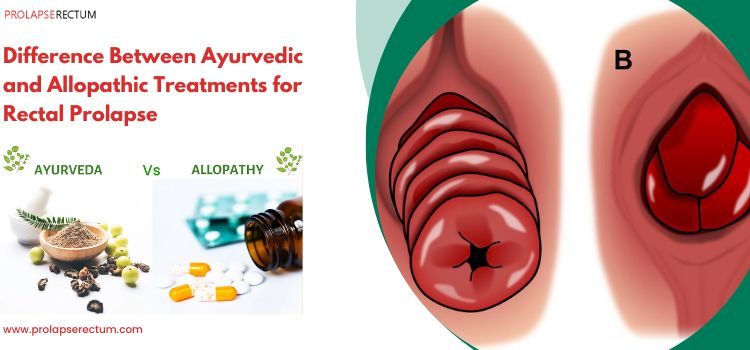While treating rectal prolapse, the majority seek a safe and permanent treatment procedure. Two of the common treatment options are Ayurveda and Allopathy. Both these medical approaches are from distinct medical traditions and have different approaches towards treating health conditions. It would be helpful to examine their method for treating rectal prolapse so that one can decide accordingly.
With the help of this web blog, let’s analyze Ayurvedic and Allopathic methods of treatment for this condition in detail.
Ayurvedic Treatment Method to Treat Rectal Prolapse
Ayurveda focuses on natural healing and restoring body balance. It aims to strengthen the muscles and improve digestion to prevent rectal prolapse from getting worse. Here’s how the Ayurvedic method works:
- Uses a natural approach to bring the body’s systems back into balance, especially the digestive and muscle functions.
- Involves personalized food and lifestyle changes to improve digestion and reduce strain during bowel movements.
- Includes gentle herbal medicines to support the healing of rectal tissues and improve blood flow to the area.
- Encourages regular daily habits, stress relief techniques, and specific exercises to support long-term relief.
Allopathic Treatment Methods to Treat Rectal Prolapse
In allopathy, rectal prolapse is treated with modern medical methods in order to suppress symptoms and prevent it from recurring. The primary objective is to correct the alignment of the rectum and enhance the comfort of the patient.
- Physicians can recommend physical measures to restore the rectum to its original position, particularly for minor cases.
- Surgeries are performed in some instances to repair or reinforce the rectum and prevent it from recurring. There is no guarantee of a cure.
- Medications can be prescribed to control pain, decrease swelling, or enhance bowel movements.
- Patients are also instructed to lead a healthy lifestyle by adopting dietary changes and bathroom habits in order not to strain during bowel movements.




